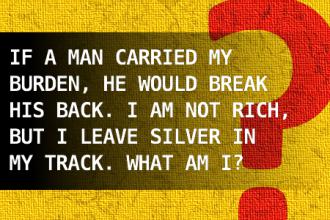If a man carried my burden, He...
Brain Teasers
[3466] If a man carried my burden, He... - If a man carried my burden, He would break his back. I am not rich, But I leave silver in my track. What am I? - #brainteasers #riddles - Correct Answers: 58 - The first user who solved this task is On On Lunarbasil

2017-01-22
